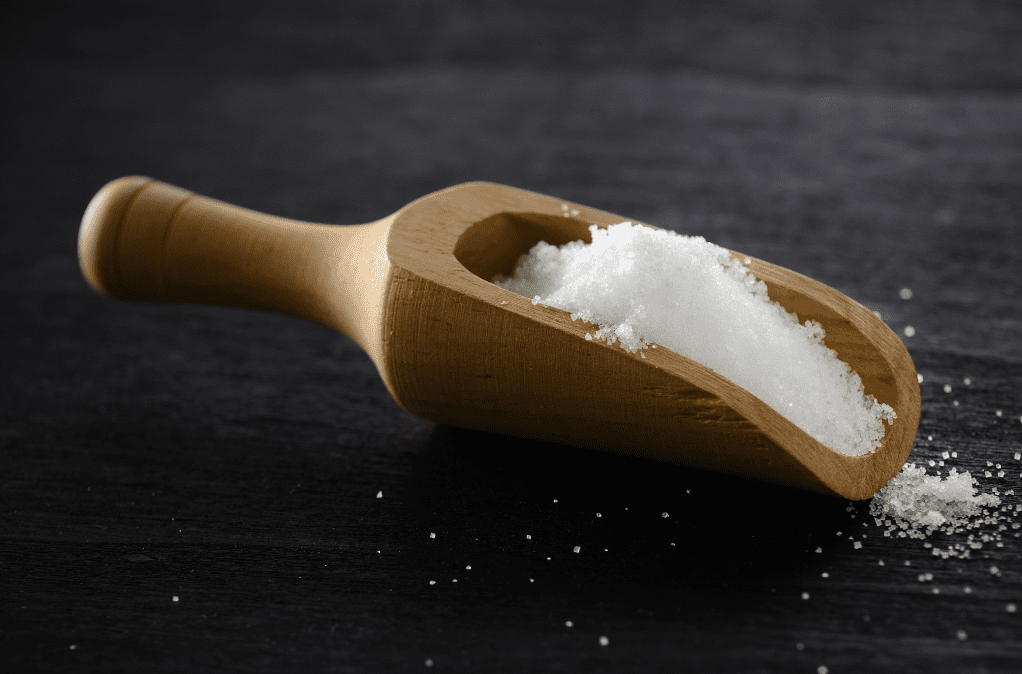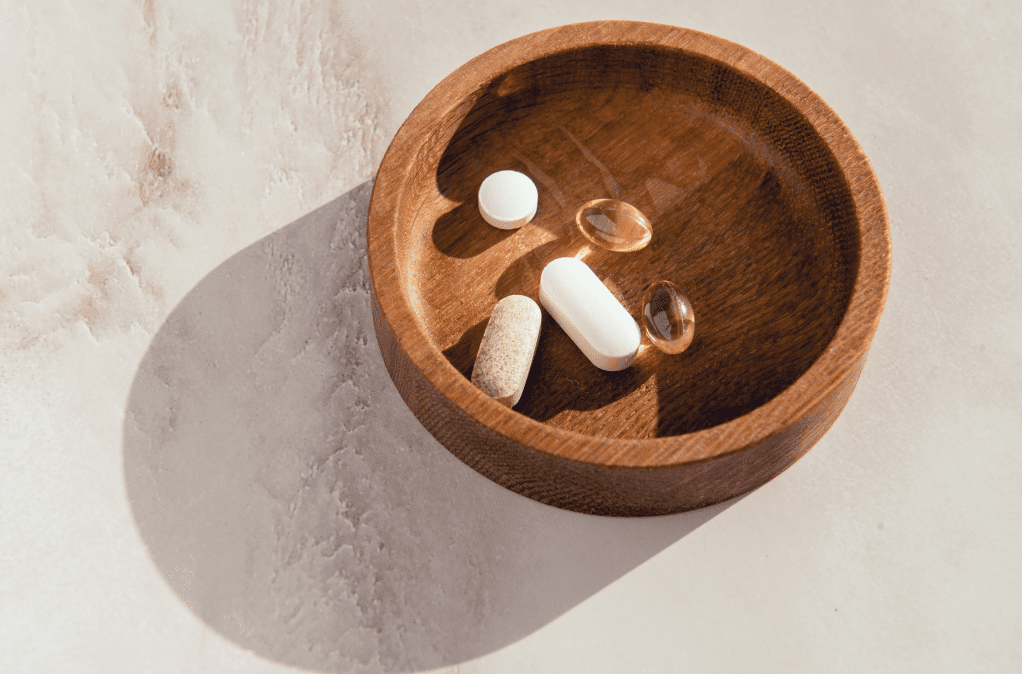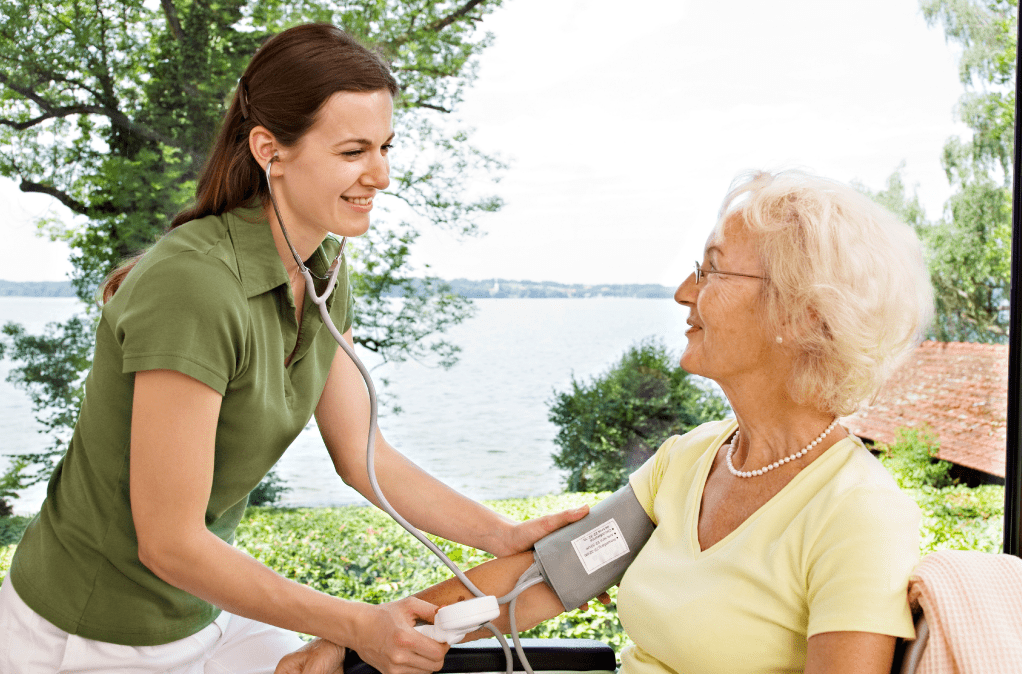According to the CDC, around 47% of Americans suffer from hypertension (high blood pressure). Of this 47%, only 1 in 4 of them have their hypertension under control. Despite how common this condition is, managing your blood pressure can often feel like a pain. This is especially true when medication is involved. However, depending on your health and lifestyle, medication may not be the only way to manage high blood pressure. In fact, some people shy away from medications due to costs or fear of harmful side effects. When medication isn’t an option, there are many evidence-backed ways that you can manage your blood pressure and live a generally healthy life. Read on to find out more about natural blood pressure maintenance methods without a prescription. (Health11news Report)

-
Keeping a healthy weight
When it comes to natural blood pressure maintenance, having a healthy weight is vital, both to your blood pressure and your overall health. As the Mayo Clinic explains, blood pressure and weight are closely linked: As your weight increases, so does your blood pressure. Eating a healthy diet and exercising regularly can help you manage your weight and naturally maintain your blood pressure.
For effective natural blood pressure maintenance, you should follow dietary recommendations set out by your doctor and by government guidelines. But in general, a healthy diet is one that:
- Emphasizes fruits, vegetables, and whole grains
- Includes varied proteins, such as eggs, lean meat, and nuts
- Is low in added sugars, cholesterol, saturated fats, and trans fats
- Is within your daily caloric needs (which will vary depending on your height, lifestyle, age, etc.)
In addition, experts recommend 150 minutes of moderate aerobic exercise per week, or 75 minutes of vigorous aerobic exercise. For even greater health benefits, government guidelines suggest up to 300 minutes of exercise per week. This exercise can come in many forms, from brisk running and swimming to more strenuous activities like running and aerobic dancing. Even if you’re not hitting the gym or doing intense workouts, little periods of exercise throughout the week can add up and make a big difference.
Regardless of how you go about it, proper nutrition and exercise are key to overall health, and thus natural blood pressure maintenance. Taking care of your body can help you take care of your blood pressure.

-
Limit sodium consumption
Sodium is a common element in many common food items. However, it’s found in especially high amounts in processed foods. According to the Harvard University School of Public Health, overconsumption of sodium is becoming a major public health issue. For most people, our kidneys are not made to handle excess sodium, causing our bodies to hold more water to dilute the sodium. This leads to build-up of fluids around blood vessels, followed by stiffening blood vessels. Because of this, high sodium consumption is linked to conditions such as heart disease, stroke, calcium loss in the bones, and more. Thus, managing your sodium consumption is a key part of natural blood pressure maintenance.
To reduce your blood pressure, the American Heart Association recommends no more than 2,300 mg of sodium per day, with an ideal limit of 1,500 mg per day for most adults. By comparison, most Americans consume about 3,400 mg of sodium per day, equivalent to about 1.5 teaspoons of salt. You should also minimize or cut foods that are high in sodium, in favor of those that aren’t. High-sodium foods include cured meats, canned entrees, frozen dinners, and any meal seasoned with large amounts of salt. Alternatives include fresh meats, eggs, and any products labeled as ‘low sodium’ or ‘unsalted’.
Finally, contrary to what you may have heard, sea salt, kosher salt, and other ‘natural’ salts do not offer a significant nutritional advantage over traditional table salt. You’ll have to lower your salt consumption in general if you want to improve your natural blood pressure maintenance.

-
Reduce stress
According to Harvard Medical School, stress is a major contributor to high blood pressure. When you’re consistently stressed, your heart beats faster, your body releases more stress hormones, and your cardiovascular system has to work even harder to keep up. This can lead to high blood pressure, heart attack, or stroke, among other harmful effects. These physiological impacts can also lead to psychological ones, including anxiety, irritability, and sadness, as well as making you more inclined to abuse addictive substances.
As such, effective stress management is also effective natural blood pressure maintenance. There are many ways to reduce stress. First and foremost, you need to avoid negative ways of reacting to stress; this can include comfort eating, smoking, and inactivity to name a few. Instead focus on positive, active methods of stress reduction. This could include connecting with others, learning relaxation methods like meditation, improving your time management skills, and many other methods.

-
Get enough sleep.
Sleep isn’t just important to natural blood pressure maintenance. Getting enough sleep is essential to overall health. In addition to lower blood pressure, benefits of getting enough sleep include: better immune system functioning, improved cognitive performance, improved mood, and more effective weight management, to name a few. While scholars are still divided on why people need sleep, one common theory is that sleep is the time when our bodies’ essential systems repair themselves and recover from the day’s events. According to the U.S. Office of Disease Prevention and Health Promotion, most adults need 7 or more hours of quality sleep each night; thus, this is the number you should shoot for to better manage your blood pressure.
However, getting enough sleep per night is only part of the equation. Sleep quality, defined by the National Sleep Foundation as whether your sleep is “restful and restorative”, also matters when it comes to natural blood pressure maintenance. In practical terms, this means sleep is completely or mostly uninterrupted, you can fall asleep in 30 minutes or less, and you spend 20 minutes or less awake after first falling asleep. For quality sleep that promotes natural blood pressure maintenance, you should ensure your room is as dark as possible, the temperature is cool (between 60 and 67 °F), and you refrain from alcohol consumption just before bed.
Lastly, some research suggests that blue light from electronic devices can make it harder to sleep. Thus, you should minimize or eliminate electronics usage during the hours before bed.

-
Ingredients and supplements for natural blood pressure maintenance
Our modern world is filled with unhealthy and processed foods. Some of these processed foods can raise your blood pressure. Therefore, a more natural lifestyle can aid in natural blood pressure maintenance. For instance, experts at Penn Medicine recommend eating foods rich in potassium, including fruits, vegetables, and beans. These foods can help better regulate your heart rate and reduce the effects of sodium consumption (which we discussed earlier). Decreasing your consumption of added sugars, refined carbs, and caffeine could also help lower your blood pressure. There’s even evidence that home cooked meals generally are associated with lower blood pressure, although further study is needed. Overall, eating a natural diet with fresh and quality ingredients can play a key role in effectively managing your blood pressure.
Finally, there are a variety of supplements on the market that can promote natural blood pressure maintenance. For instance, Medicine Man Plant Co. offers a unique Blood Pressure Pill. This simple pill is made not from strange and unpronounceable chemicals, but from natural flowers that have been used for generations; this includes hawthorn, rosella, ginger, and more. Through this and similar supplements, you can take control of your health just as our ancestors once did.
You can find out more about Medicine Man Plant Co. and their products on their website.

Disclaimer
Important Note: The information contained in this article is for general informational purposes only, and should not be construed as health or medical advice, nor is it intended to diagnose, prevent, treat, or cure any disease or health condition. Before embarking on any diet, fitness regimen, or program of nutritional supplementation, it is advisable to consult your healthcare professional in order to determine its safety and probable efficacy in terms of your individual state of health.


